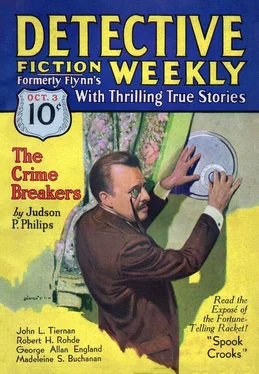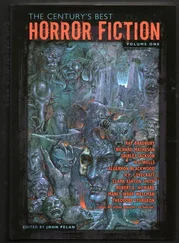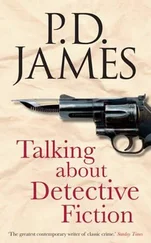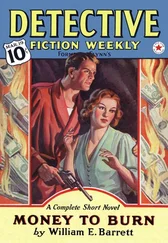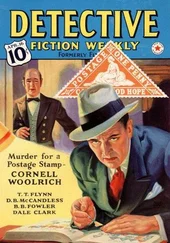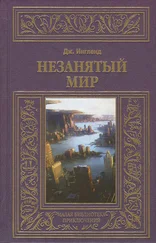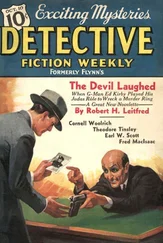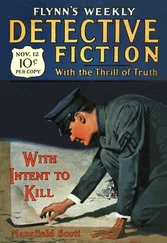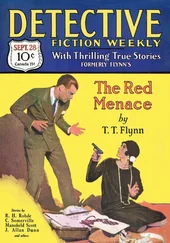Джордж Энгланд - Detective Fiction Weekly. Vol. 62, No. 2, October 3, 1931
Здесь есть возможность читать онлайн «Джордж Энгланд - Detective Fiction Weekly. Vol. 62, No. 2, October 3, 1931» весь текст электронной книги совершенно бесплатно (целиком полную версию без сокращений). В некоторых случаях можно слушать аудио, скачать через торрент в формате fb2 и присутствует краткое содержание. Город: New York, Год выпуска: 1931, Издательство: The Red Star News Company, Жанр: Детектив, на английском языке. Описание произведения, (предисловие) а так же отзывы посетителей доступны на портале библиотеки ЛибКат.
- Название:Detective Fiction Weekly. Vol. 62, No. 2, October 3, 1931
- Автор:
- Издательство:The Red Star News Company
- Жанр:
- Год:1931
- Город:New York
- ISBN:нет данных
- Рейтинг книги:3 / 5. Голосов: 1
-
Избранное:Добавить в избранное
- Отзывы:
-
Ваша оценка:
- 60
- 1
- 2
- 3
- 4
- 5
Detective Fiction Weekly. Vol. 62, No. 2, October 3, 1931: краткое содержание, описание и аннотация
Предлагаем к чтению аннотацию, описание, краткое содержание или предисловие (зависит от того, что написал сам автор книги «Detective Fiction Weekly. Vol. 62, No. 2, October 3, 1931»). Если вы не нашли необходимую информацию о книге — напишите в комментариях, мы постараемся отыскать её.
Detective Fiction Weekly. Vol. 62, No. 2, October 3, 1931 — читать онлайн бесплатно полную книгу (весь текст) целиком
Ниже представлен текст книги, разбитый по страницам. Система сохранения места последней прочитанной страницы, позволяет с удобством читать онлайн бесплатно книгу «Detective Fiction Weekly. Vol. 62, No. 2, October 3, 1931», без необходимости каждый раз заново искать на чём Вы остановились. Поставьте закладку, и сможете в любой момент перейти на страницу, на которой закончили чтение.
Интервал:
Закладка:
“I... I don’t know,” said Peg. She had been looking diligently for a view of Jim’s face ever since the lights had come on.
“Who was it, Peg?” her father asked.
She hesitated. “I’d rather not say, dad. Quite obviously it would incriminate him, and I know that he had nothing to do with this.”
“But if you know that, Peg, what harm can there be in telling me?” the millionaire asked.
“I’d rather not, dad.”
“I remember his name right enough,” said the detective bluntly. “I heard you speak to him. It was Jim Garth.”
There was one of those moments of electric silence. Carrington looked rather reproachfully at Peg, who was biting her lip. Sheringham, his face impassive, took out his handkerchief and wiped his mouth.
“Jim Garth, eh?” he said, quietly. “I thought he had another month to serve.”
“Month off for good behavior,” said Carrington, absently. He was upset by this disclosure. He knew something of what his daughter had felt for Jim, and he himself had always liked the boy. He couldn’t believe that Jim would descend to common burglary.
“I should think,” said Sheringham, acidly, “that our little problem is solved. An ex-convict — a man who has just served a term for embezzlement — is the one person known to have disappeared from the house.”
“You’re not accusing Jim of stealing the necklace, are you?” demanded Peg, hotly.
Sheringham shrugged. “Circumstantial evidence, my dear Peg. I was just as shocked as you were a year ago to learn that Garth was a crook. But we must look facts in the face, and this looks pretty bad for him.”
Peg was white and shaking with anger. “Jim Garth is no more a crook than I am, Basil, and you know it. He paid the price for some one else, and you know it as well as I do. He was left holding the bag.”
Sheringham knew it much better than she did, but nothing in his manner suggested it. “Loyalty is a splendid quality, Peg. It’s too bad that yours is misplaced.”
The detective was uninterested in personal loyalties. “Suppose you give us a description of this Garth,” he said. “I only got a brief look at him. Tell me all you know about him.”
“I can describe him readily enough,” said Sheringham, “as for the details of his career, you will find them in the criminal records.”
While Sheringham was talking to the detective the front door was opened to two men who at first glance appeared to be policemen. One of them, a sharp-eyed, gray-haired man with a lean, hard body, introduced himself to Carrington as Inspector Ives from police headquarters. He was promptly apprised of the facts by the detective.
“You pulled a boner on that car, Corliss,” said Inspector Ives. “No yellow Rolls-Royce has left this district.”
“It was the yellowest car I ever saw,” said the detective. “If you’ll question the chauffeurs out there you’ll know that there was no mistake about that.”
“Perhaps you can explain where it went then,” said Ives. “Did you notice whether it was equipped with flying apparatus? Because that’s the only way the car you describe could have got out of this neighborhood. We’ve questioned every traffic cop for blocks around and not a single damned one of them laid eyes on such a car. There are extra men on, too, because of this reception. I tell you no yellow Rolls-Royce left this neighborhood.”
“And I tell you, inspector, I saw it go with my own eyes,” insisted Corliss.
Inspector Ives shrugged. “In that case it has just been swallowed up.”
The faintest of ironic smiles twisted Basil Sheringham’s lips. How could the inspector guess that his attempt at sarcasm was almost the literal truth?
Chapter X
Garth Follows the Diamonds
When Jim Garth ran out of the Carrington house on the trail of the shadowy figure who had preceded him, he at first saw no one except the group of chauffeurs on the sidewalk, but just as he was about to turn back he glimpsed Cronin climbing in behind the wheel of the yellow Rolls. It was not a moment when he could debate his course of action. Either he must assume that this man was flying with the necklace or he must go back and keep his eye on Sheringham. One thing decided him. When the lights had gone out Sheringham had been standing way across the room by the Florentine tapestry, yet when the butler appeared with candles, Sheringham was out in the entrance hall. The assumption was that he had passed the necklace to his confederate under the curtain of darkness.
Cronin had already backed the yellow car out of line and Jim saw that there was no chance of stopping him. The only hope was to find some means of following him, so he ran down the block waving frantically at a taxi which had drawn up at the corner.
“If you stick on the trail of that yellow Rolls it will be worth twenty-five dollars to me,” said Jim sharply.
“O. K., boss!”
Jim nearly smashed in the back of his head as the taxi started forward with a jerk that threw him against the seat. Cronin was already under way and the taxi driver, in order not to miss him at the next corner, was burning up the pavement. Jim leaned forward and spoke.
“If he stops and leaves that car anywhere I’ve got to follow him, so here’s your money now.” He slipped some bills into the driver’s pocket, and the man nodded, grimly intent on keeping the Rolls in sight.
Cronin swung the yellow car around the corner at a perilous rate of speed, and Jim offered up a silent prayer as the taxi lurched dangerously in pursuit. There could be no doubt now that Cronin was attempting to make a getaway, which argued that he was in possession of the diamonds. The Rolls raced through a red traffic light without slackening speed, and Jim’s taxi nearly ended its career and the careers of its occupants as it narrowly missed colliding with another car which came across their path on the green light. Jim mopped the perspiration from his forehead with a silk handkerchief.
Down the block, drawn up at the curb, was a huge moving van, the back open and a sort of runway incline sloping down from the tail board. Two men stood idly on the pavement smoking cigarettes. With a startling abruptness the Rolls brakes screamed out in protest and the big yellow car slowed down and then with a precision that spoke worlds for the skill of the driver, ran up the runway and into the body of the moving van. The two men on the sidewalk were suddenly all action. The runway was shipped into the van and the big rear doors were closed. Almost before the time it takes to tell it, the Rolls, as Inspector Ives had innocently remarked, was swallowed up.
Jim’s taxi, unprepared for any such maneuver had narrowly missed crashing into the back of the Rolls as it slowed down, swerved around it and sped past the van. Jim had a brief glimpse of the disappearing act, but enough to know what had happened.
“Keep going,” he ordered the driver, tensely. “I don’t want them to think we’re following. We’ll pick up the van in a minute.”
The taxi man’s eyes were popping out of his head. The vision of the big car driving up into the van was one of the strangest things he had ever seen. He slowed down gradually and presently drew in to the curb. He was gambling on the chance that Cronin had been too intent upon his driving to notice the fact that he was trailed, and in this gamble Jim was correct. The van came lumbering along the street now, being very careful to observe the traffic signals... a very innocent looking vehicle. Looking up and down the street Jim saw no one who might have observed the strange maneuver of the Rolls. Either luck was with Sheringham or this has been carefully arranged.
For ten or fifteen blocks the truck continued its leisurely way, with Jim’s taxi trailing as unobtrusively as possible. At last, halted by a traffic light, the truck pulled in near the pavement and a man climbed down from the front seat. Jim recognized the tweed cap and hunched shoulders of Cronin. Jim opened the door of the taxi.
Читать дальшеИнтервал:
Закладка:
Похожие книги на «Detective Fiction Weekly. Vol. 62, No. 2, October 3, 1931»
Представляем Вашему вниманию похожие книги на «Detective Fiction Weekly. Vol. 62, No. 2, October 3, 1931» списком для выбора. Мы отобрали схожую по названию и смыслу литературу в надежде предоставить читателям больше вариантов отыскать новые, интересные, ещё непрочитанные произведения.
Обсуждение, отзывы о книге «Detective Fiction Weekly. Vol. 62, No. 2, October 3, 1931» и просто собственные мнения читателей. Оставьте ваши комментарии, напишите, что Вы думаете о произведении, его смысле или главных героях. Укажите что конкретно понравилось, а что нет, и почему Вы так считаете.
